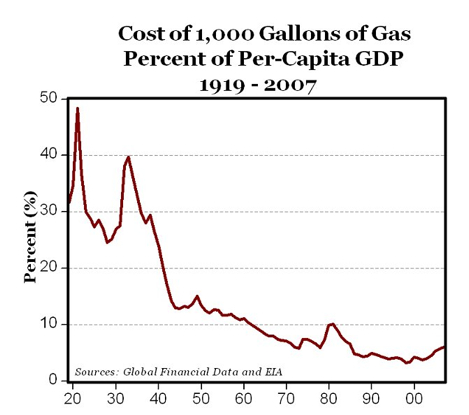I'm trying to "crystal ball gaze" into the future on this.
Is it "Scenario A" or "Scenario B"?
Scenario A
This goes on for 5-10 more years (like the past 5 years) Eventually the numbers start adding up. Grocery store charges more because the truck bringing the groceries to the store costs more [diesel fuel] which makes the groceries cost more. You buy less "chips" (or whatever it's just an example) at the grocery store because you have less income and also because the "chips" cost more. Eventually less "chips" are sold and then the "chip" company cries poor and has to cut back jobs because of less revenue. Wash, lather, rinse, repeat.
Scenario B
You use 30-40 gallons a week. Gas costs an extra $1 more than it should or it used to or whatever. $35 extra. Easily put aside. Everybody move on, do not be alarmed.
I guess I am asking how important is it that this "gets under control" now and in the future?
Is it "Scenario A" or "Scenario B"?
Scenario A
This goes on for 5-10 more years (like the past 5 years) Eventually the numbers start adding up. Grocery store charges more because the truck bringing the groceries to the store costs more [diesel fuel] which makes the groceries cost more. You buy less "chips" (or whatever it's just an example) at the grocery store because you have less income and also because the "chips" cost more. Eventually less "chips" are sold and then the "chip" company cries poor and has to cut back jobs because of less revenue. Wash, lather, rinse, repeat.
Scenario B
You use 30-40 gallons a week. Gas costs an extra $1 more than it should or it used to or whatever. $35 extra. Easily put aside. Everybody move on, do not be alarmed.
I guess I am asking how important is it that this "gets under control" now and in the future?









